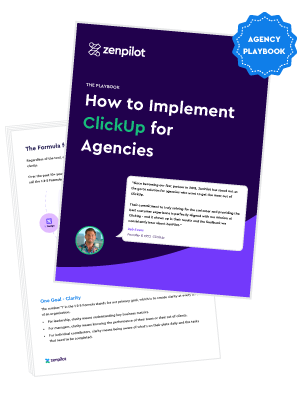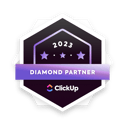The 4 Levels of Successful Networking for Agency Owners (feat. Kurt Schmidt)

“In all aspects of your work and your business, you have systems. Why is networking, which is just as important as any one of those singular things, not managed with such ferocity?”
Kurt Schmidt is an agency founder, podcast host, author, and agency coach with 25 years of experience growing agencies from just a few people to over 500 employees and tens of millions in revenue. He started his career as a designer and developer before catching the entrepreneurial bug and becoming a "pirate" as he puts it.
In the latest value-packed episode of Agency Journey, Kurt shares his hard-earned wisdom on business development, networking, and delivering client results. He emphasizes the importance of taking a problems-first approach rather than just showcasing capabilities.
Kurt is also the author of “The Little Book of Networking”, and in this conversation he explained the system he uses to consistently provide value to his network and build community.
Whether you're looking to jumpstart your agency's growth or build a thriving professional network, this episode is a must-listen.
Read on to discover a networking framework inspired by Kurt's insights: the Networking Success Pyramid, consisting of 4 distinct levels.
Episode Insights:
💡 Go back and audit your current and past clients to see which ones are in a growth stage and may have additional problems you can solve. Most clients have no idea about your full capabilities.
💡 Focus on the problems you solve and the outcomes you create rather than just showcasing the executional work in your portfolio. Clients care about how you can help them, not how pretty your designs are.
💡 When networking, clearly state what you do and what you're looking for. Be equally intentional about understanding and recording others' needs. Systematize your follow-ups and always look for ways to provide value and make connections.
💡 Study how other professional services firms like lawyers and accountants acquire clients and manage their businesses. Don't limit your learning to just agencies in your specific niche.
💡 Explore different billing models like productized services and outcome-based fees. Discuss what's working with agency peers to find the best fit for your clients and business.
Resources Mentioned:
🏢 Kurt's agency, Foundry
📙 The Little Book of Networking by Kurt Schmidt:
📙 The 10-10-10 Blueprint by Kurt Schmidt
Check out the video recording of the conversation here:
Or go here to listen to the episode on your favorite podcast platforms.
Read on for an exploration of the insights from this episode.
Introducing the Networking Success Pyramid
Networking. It's a word that often conjures up images of awkward small talk, stale coffee, and endless business card exchanges. But what if networking could be more than that? What if it could be the key to unlocking your agency's full potential?
Kurt's approach to networking is all about building genuine relationships, solving problems, and creating value. He's not just talking about showing up to industry events and hoping for the best.
In fact, Kurt's insights on networking were so inspiring, I took the liberty of organizing them into a unique framework. We'll call it the Networking Success Pyramid.
Let's go through each level of the pyramid one by one.
Level 1 / The Foundation: Mindset (problem-solving focus and community-building approach)
At the base of Kurt's pyramid is mindset.
As he puts it, "You're kind of taught networking is a very transactional thing, but that's not real networking. That's not modern networking, and not what I talk about in my book. You want to approach it as a community builder."
This means going beyond just trying to sell your services and instead focusing on building genuine relationships and contributing to the success of others in your industry. By shifting your mindset to one of community-building, you position yourself as a valuable resource and thought leader, attracting clients and opportunities through your reputation and network.
A natural consequence of networking is that you might get a chance to pitch your services.
Here, Kurt offers a second major mindset shift: shifting your focus away from simply showcasing who you worked for—and towards talking about the specific problems you helped solve for the clients you worked with.
Kurt emphasizes that the foundation of successful networking lies in adopting a problem-solving mindset. He argues that the traditional approach of showcasing your work and relying on the reputation of big-name clients you've served is no longer effective.
"Instead of just saying like, 'Oh, we did work with this big company...' That would work 10 years ago. Because they'd be like, 'Oh, I want to be like those big companies. So I, I'll hire you because you seem like, you know what you're doing.' People don't care anymore."
In the past, agencies could impress potential clients by dropping the names of well-known companies they'd worked with. The reasoning was that if an agency was good enough for these big players, they must be good at what they do. However, Kurt points out that this approach has lost its impact in today's market.
Instead, he advocates for a shift towards actively seeking out and solving clients' problems. "What doesn't matter is the executable or the deliverable. What matters is the story about how you transformed a business, how you helped them, what the problem is you solved. Because then what people will do is say, Oh, I have that problem too. Or I have a problem like that. Or I know somebody who has a problem like that. And they will identify and attach themselves more and more to it."
Rather than focusing on the specific deliverables or the prestige of past clients, Kurt recommends highlighting the real impact of your work through case studies. By sharing stories of how you've transformed businesses by tackling their unique challenges, you demonstrate your value as a problem-solver. This approach is more likely to resonate with potential clients who are facing similar issues and are looking for an agency that can deliver tangible results.
Level 2: Relationships (building and nurturing connections with clients, partners, and peers)
Once you've got the right mindset, it's time to start building relationships.
Kurt advises conducting a thorough audit of your existing and past clients, identifying those who are in a growth stage, and reaching out to them.
"So first step is obviously do a audit of all the clients you're currently working with, put them in a list, in a spreadsheet. Make another tab and put all the clients you've worked with in the past. I don't care what capacity, I don't care if they paid you $5 or $5 million, put their names in that list."
But don't stop there. Kurt also stresses the importance of building a strong referral network with complementary service providers. For example...
"There are many different types of lawyers. There's trial lawyers, right? There's lawsuit lawyers, there's real estate lawyers. There's all these things, right? But us, as general knowledge people, when somebody says, 'Oh, you better get a lawyer.' We just call somebody, whoever's got lawyer in their name or whatever. And that lawyer might say, 'Well, yeah, I do help people like you, but I mostly help businesses. You probably want to deal with my colleague, Bill over here, who does this.' And then guess what? The guy you called is going to get a referral fee from Bill."
Joining or creating mastermind groups with agency owners in adjacent industries is another way to expand your network and stay informed about emerging trends and best practices.
Level 3: Value Creation (offering solutions, sharing insights, and providing referrals)
Networking isn't just about what you can get; it's about what you can give. That's where value creation comes in.
One way to create value is by actively listening to your clients and potential partners to understand their challenges and then offering relevant solutions. Kurt shares an example of how he approaches this: "My approach is I bring it up right away. So if somebody says to me... Like, I just had breakfast with a good old buddy of mine this morning and he's working at an agency, and he said 'Yeah, we're really looking for enterprise-level ERP sort of clients and stuff.' And I was like, 'Oh, I, I run into that on occasion'."
In this context, Kurt is describing how he proactively offers to help his network by connecting them with potential clients or resources. By staying attuned to the needs of others and actively looking for ways to assist them, you position yourself as a valuable resource and problem-solver.
Another aspect of value creation that Kurt touches on is sharing your knowledge and expertise with your network. He provides a couple of examples:
"What I'll say is, oh, I just recently helped an agency decide on which project management software they should be upgrading to because they're running a three and a half million dollar business on Basecamp right now and they need to upgrade. Another one, I helped them figure out how to do cold outreach on LinkedIn to be very successful and how to build authority and thought leadership."
By sharing specific examples of how you've helped others navigate challenges or improve their businesses, you demonstrate your value as a thought leader and trusted advisor.
This can take many forms, such as creating content, speaking at events, or engaging in online communities. The key is to consistently share insights and expertise that benefit your network.
Finally, don't forget about referrals! When you come across a client or contact who has a need outside of your agency's scope, don't hesitate to connect them with a trusted partner who can help. By generously offering referrals, you'll strengthen your relationships and create a culture of reciprocity within your network.
Level 4: Growth and Learning (expanding services, staying informed about industry trends)
As you build relationships and create value, you'll naturally start to uncover new opportunities for growth and learning. Kurt advises agency owners to actively seek out cross-industry learning opportunities, whether that means attending events, joining online communities, or simply reaching out to agencies in adjacent industries.
"Learn from other professional service industries, not just more digital industries. Learn from lawyers, accountants, all these different people. How are they growing? How do they grow their businesses? They've been around a lot longer than these digital agencies have been. And so the techniques that they use are very similar to what I'm talking about. And they become kind of that hub-and-spoke."
One example of what digital agencies can learn from other service-based businesses pertains to billing practices.
Through studying the billing practices of established industries, agency owners can gain valuable insights into alternative pricing strategies, such as productized services, retainer-based models, or value-based pricing. Kurt encourages agencies to explore these options and adapt them to their own unique circumstances, potentially uncovering new revenue streams and more profitable ways of working with clients.
By staying informed about emerging trends and technologies, you can position your agency as a forward-thinking partner and offer even more value to your clients.
The End Result: Agency Success
So, what does all of this lead to? The pinnacle of Kurt's Networking Success Pyramid: increased opportunities, revenue growth, and industry recognition.
By consistently applying the principles and strategies outlined in the pyramid, you can unlock a whole new level of success for your agency.
As Kurt puts it:
"'How's things going?'
'You working on anything cool?'
'What are you looking for?'
'Do you want an intro?'
I've had multimillion dollar projects come through in just that little tiny sequence."
Actionable Steps for Agency Owners for Networking Success
If you want to put Kurt's insights into action, consider putting these to-dos on your agenda:
- Conduct a client audit and prioritize reaching out to those in a growth stage.
- Create a capability presentation deck that highlights how you solve specific problems.
- Develop a referral program with clear fee structures.
- Join or create a mastermind group with agency owners in complementary industries.
- Consistently share valuable insights and thought leadership content with your network.
- Proactively offer referrals to trusted partners when a client has a need outside of your scope.
- Stay informed about industry trends and emerging technologies.
- Implement tools like CRMs and project management software to streamline your networking efforts.
- Explore the potential of AI and chatbots, but don't rely on them too heavily.
- Measure your success by tracking new opportunities, revenue growth, and industry recognition.
Conclusion: Networking doesn't have to be a chore
By following Kurt's Networking Success Pyramid, you can turn it into a strategic tool for unlocking your agency's full potential.
Remember, it's all about building genuine relationships, solving problems, and creating value.
As Kurt says, "a rising tide lifts all boats. So what you wanna be is that person that's helping raise that tide and bringing that to other people. And I promise you, as you're helping other people raise their boats, your boat will get raised too."
If you want to level up your business contacts game and leverage the Networking Success Pyramid, be sure to connect with Kurt on LinkedIn for more inspiration. Also, needless to say, he's a great person to have in your network if you're looking for relevant intros of any sort!
Get more agency insights
Remember to give the full episode a watch or listen to learn the most you can from it.
Don't forget to subscribe to Agency Journey on all your favorite podcast platforms to get more insights like this!
👉 Spotify
You can also follow us on YouTube.
See you in the next episode!
P.S. Agency Journey is brought to you by ZenPilot. We've helped 2,700+ agencies streamline their operations with the power of ClickUp. Get our free 56-page ClickUp Guide here.




